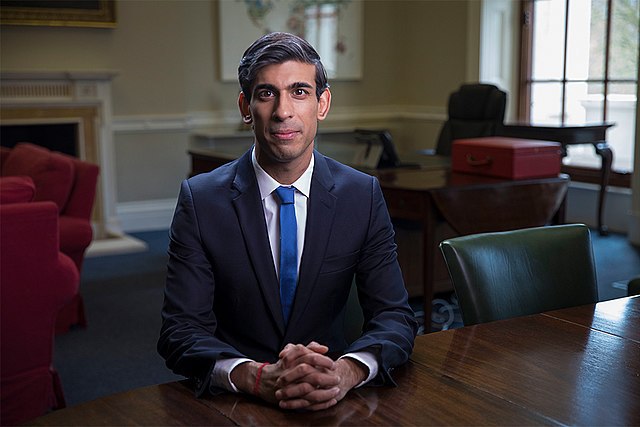Rishi Sunak has made history as the first person of color to hold the office of the prime minister of the United Kingdom. This appointment comes following his consolidation of leadership in the Conversative Party formerly headed by Liz Truss.
Sunak was elected as leader of the Tories on Oct. 24 and is set to form a government in the King’s name. He enters 10 Downing Street at a time when the country is deeply divided and faces immense economic and political turmoil, with the country experiencing three different prime ministries in the short span of three months.
One could argue that the most notable achievements of Westminster Hall of late have been forcing Boris Johnson out of office, a head of lettuce lasting longer than Liz Truss in office and now electing the youngest prime minister in modern history.
Sunak inherits a country that former Prime Minister Truss promised to set towards “long-term success.” Sunak faces several forthcoming challenges as he takes on the role of Prime Minister — soaring mortgage rates and the plummeting value of the pound and chaos in bond markets threatening the country’s financial stability, to name a few.
As former Chancellor of the Exchequer, Sunak led the United Kingdom’s COVID-19 economic recovery and managed economic challenges in light of Brexit. Following his appointment as prime minister, Sunak asserted that “[he]will place economic stability and confidence at the heart of this government’s agenda.”
Sunak is part of a legacy of recent Conservatives coming to office without a general election. The incoming prime minister’s wealth has also come under scrutiny, now and even before his appointment, as a result of his wife’s non-domicile status, which caused much controversy due to concerns of potential tax evasion.
The new PM has previously served as Chancellor of the Exchequer from 2020 to 2022 and Chief Secretary to the Treasury from 2019 to 2020. He was born to Punjabi-Indian immigrant parents from East Africa, and grew up in the United Kingdom, attending an elite private school. Sunak graduated from Oxford University with a bachelor’s in Philosophy, Politics and Economics, and went to the United States to attend Stanford University’s business program as a Fulbright scholar.
Importantly, Sunak is relatively new to the political realm and previously had an influential business career. Prior to coming under the political spotlight, he worked at Goldman Sachs in America’s Silicon Valley and was a later partner at the Children’s Investment Fund Management and Theleme Partners hedge funds.
Sunak is married to Akshata Murthy, the daughter of Indian billionaire and founder of Infosys, Narayanna Murthy. Sunak and Murthy collectively have an estimated net worth of £730 million. For the first time in history, the residents of 10 Downing Street are more wealthy than the monarch of Buckingham Palace.
Sunak’s ascension continues the trend of British politicians sending one controversial figure to another to 10 Downing Street. With 14 million people in the country struggling to find one meal for the day, their prime minister is sitting on money that makes him part of the top 1%.
His economic policies while regulating Britain’s finances saw the biggest tax burden since the 1950s. Sunak advocated to make the Bank of England independent from the government. Now the prime minister is likely to oversee spending cuts and tax balance, made worse by Truss’s plan for unfunded tax cuts and a costly energy price guarantee. However, winter is coming — the prices of oil skyrocketing in the United Kingdom will make the upcoming months even more difficult for its citizens.
Few of the major challenges that Sunak will face after forming a government will be to show he can control the Conservative Party — one that controls the house with a large majority but suffers from internal conflict on key issues. Rishi Sunak has to try to achieve what his two predecessors couldn’t unite the Conservative Party in a time of distress for the British government.
Many members of the Indian community feel that Sunak is “posh and rich and just like the rest of Westminster.” In terms of representation, a non-white Indian Hindu and son of immigrant entering the highest office of acountry with historical and present-day ties to colonialism is a win. British-American journalist Hassan Mehdi has candidly spoken out on the need to focus on the politics in “identity politics,” rather than just the identity. Mehdi is among the many diasporic British Indians who are unhappy with Sunak’s appointment as prime minister.
Therefore, in the case of his policies towards immigrants, economic crisis and oil prices is Rishi Sunak the right choice for this moment? Is this Tory representative the right choice? Only time will tell if this new prime minister will survive in the harsh political setting that ousted both his predecessors.







